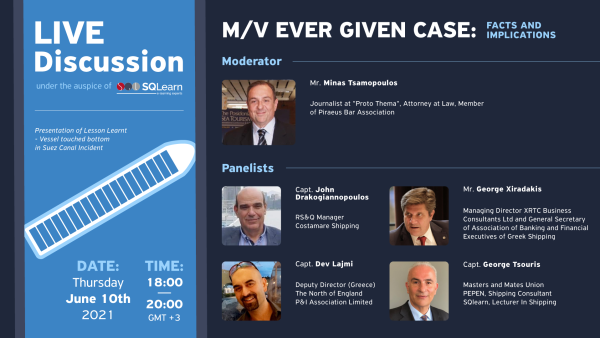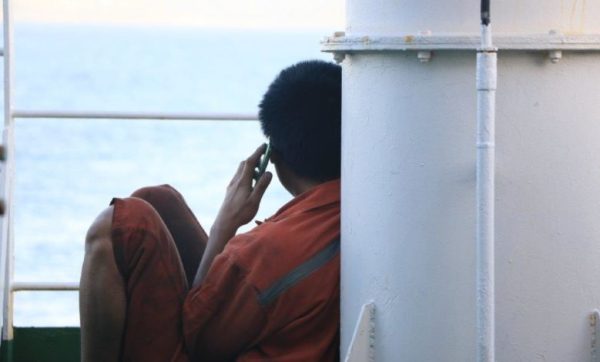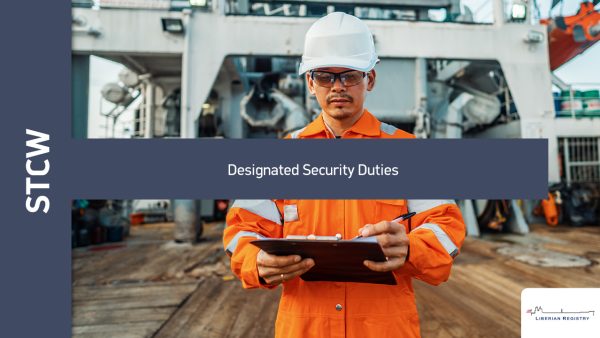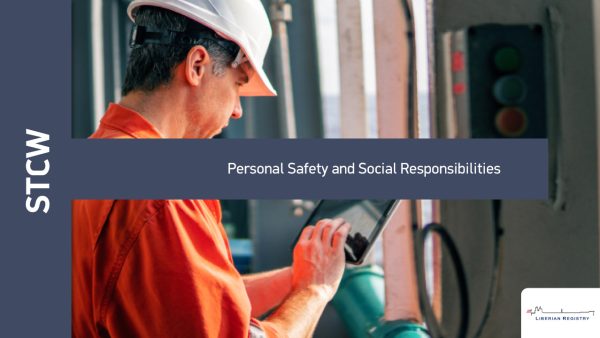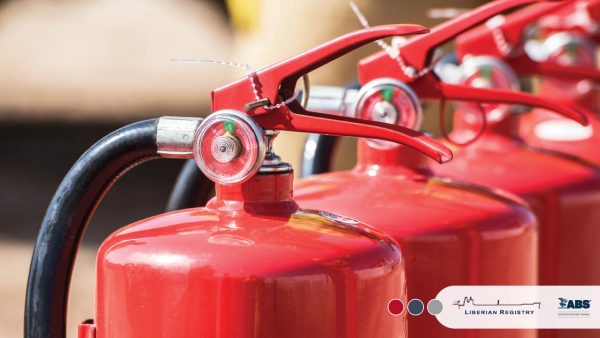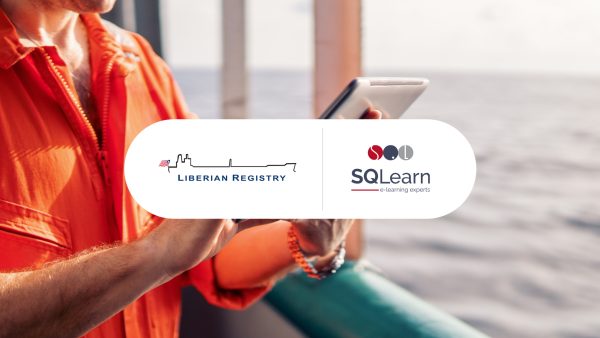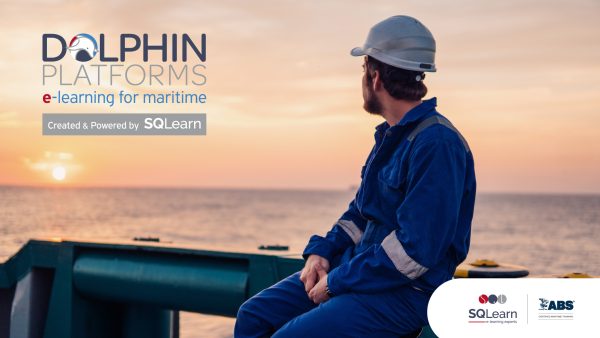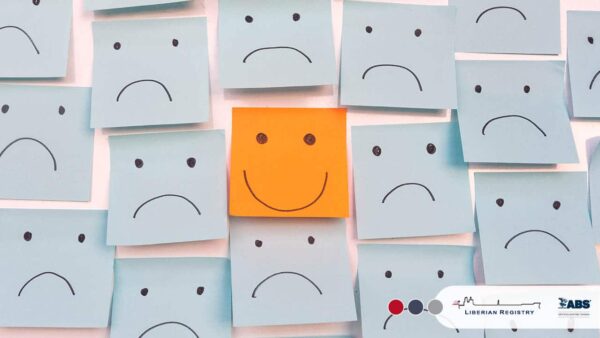“M/V Ever Given Case – Facts & Implications”, a LIVE Discussion under the auspice of SQLearn.
SQLearn, being next to the shipping industry through e-learning solutions, conducts a LIVE Discussion about the “M/V Ever Given Case – Facts & Implications”, presenting Lessons Learnt for the “Vessel touched bottom in Suez Canal” incident.

